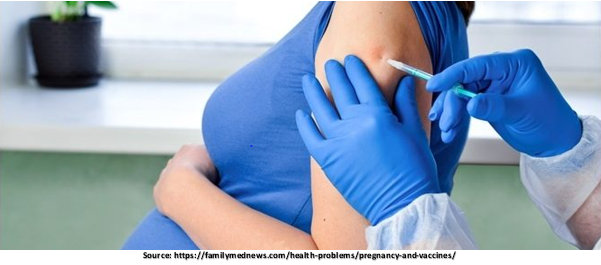Women, particularly pregnant or breastfeeding, are avoiding the COVID-19 vaccine because so many drugs are contraindicated during pregnancy. Fear of vaccines having an adverse effect on a developing foetus is enough to keep women from being vaccinated.

For coronavirus prevention, vaccination is just as crucial as social distancing, wearing a mask, washing hands, and applying sanitizer. So much misinformation is circulating on social media and news channels that it’s high time for women, regardless of gynecological issues, to know the facts about vaccines and how they can or cannot damage their health.
In this article, Dr. Shweta Shah, one of the best gynaecologist in Mumbai, has provided information about what doctors advise for pregnant, breastfeeding, perimenopausal and menopausal women, and women with PCOS, and other conditions on getting the COVID-19 vaccines.
Let’s know,
When can lactating women take the Covid-19 vaccine?
Vaccination is possible for lactating women, regardless of whether they had a normal delivery or a C-section. However, some of the best gynecologist doctor in Mumbai advise lactating women to wait four to six weeks after delivery and be cautious until they are vaccinated due to practical obstacles and their body state.
All nursing women can be vaccinated, regardless of any concomitant diseases such as diabetes, hypertension, or other problems. The four to six-week waiting period allows their bodies to recover and adjust to their new surroundings. Still, it is recommended that new mothers consult one of the best gynecologist in Mumbai and get vaccinated within those four to six weeks. However, all women above the age of 18 are advised to get vaccinated.
Now, let’s know,
Is the Covid vaccine safe to take during periods?
Messages are being forwarded that women should not get the Covid-19 vaccine during menstruation. This isn’t the case at all. Before, during, and after menstruation, the Covid-19 vaccine can be taken.
Heavy blood flow, frequent pad changes, dysmenorrhea, and other factors might make some women uncomfortable during menstruation. Getting vaccinated during such a period might exacerbate the discomfort by causing mild vaccine side effects such as fever, soreness at the injection site and hand, body ache, and so on.
To avoid these unpleasant symptoms, such women should only get vaccinated before or after their period. Otherwise, there is no link between getting vaccinated and the menstrual cycle.
Is the Covid-19 vaccine safe for women who are trying to get pregnant?
There are no scientific reasons why the Covid-19 vaccine should be avoided by women trying to conceive naturally or through reproductive treatments. As a result, getting pregnant three weeks following the second dosage of the vaccine is a smart idea. However, no significant research has been done to determine the vaccine’s effect on a growing foetus during the organogenesis phase (the first three months when the foetus’ organs are produced).
Some of the best gynecologist doctor in Mumbai advise that before conceiving, everyone’s first goal should be to get vaccinated and prevent the disease. You may calmly welcome your baby into the world once you know you are secure from Covid-19’s horrific complications.
Let’s know,
Should APLA-positive women who want to get vaccinated stop taking blood thinners first?
Women who are APLA – antiphospholipid antibodies positive and use oral blood thinners can get vaccinated. However, if they are on injectable anticoagulants, doctor’s advice and blood tests are recommended.
Although vaccination is not contraindicated in such women, blood tests are only performed to check specific parameters because the Covid-19 vaccine is administered intramuscularly. Also, the doctor might suggest skipping an anticoagulant dose following the vaccination.
Can PCOS sufferers and contraceptive pill users get vaccinated?
For women who take contraceptive pills and have PCOS, irregular periods, and ovarian cysts, the Covid-19 vaccination may lead to minor blood clotting.
Hence, some of the best gynecologist doctor in Mumbai advise abstaining from oral contraceptives for a month before vaccination, even if only to avoid the most uncommon consequence. Contraceptives with Covid-19 infection have a substantially higher risk of causing blood clots than the Covid-19 vaccination.
Comorbidities in Menopausal, Perimenopausal, and Postmenopausal Women:
Vaccination is safe for women who are menopausal or perimenopausal and those who have fibroids, endometriosis, or other concomitant conditions like hypertension, diabetes, epilepsy, or asthma.
Women who have an active genital infection, a fever, or have previously been allergic to a vaccine should seek medical advice and get vaccinated.
The third wave will be more controlled if we all get vaccinated. Our life’s future and safety are in our control. To keep yourself and your loved ones safe, avoid believing fake news and myths and opt to be vaccinated.

